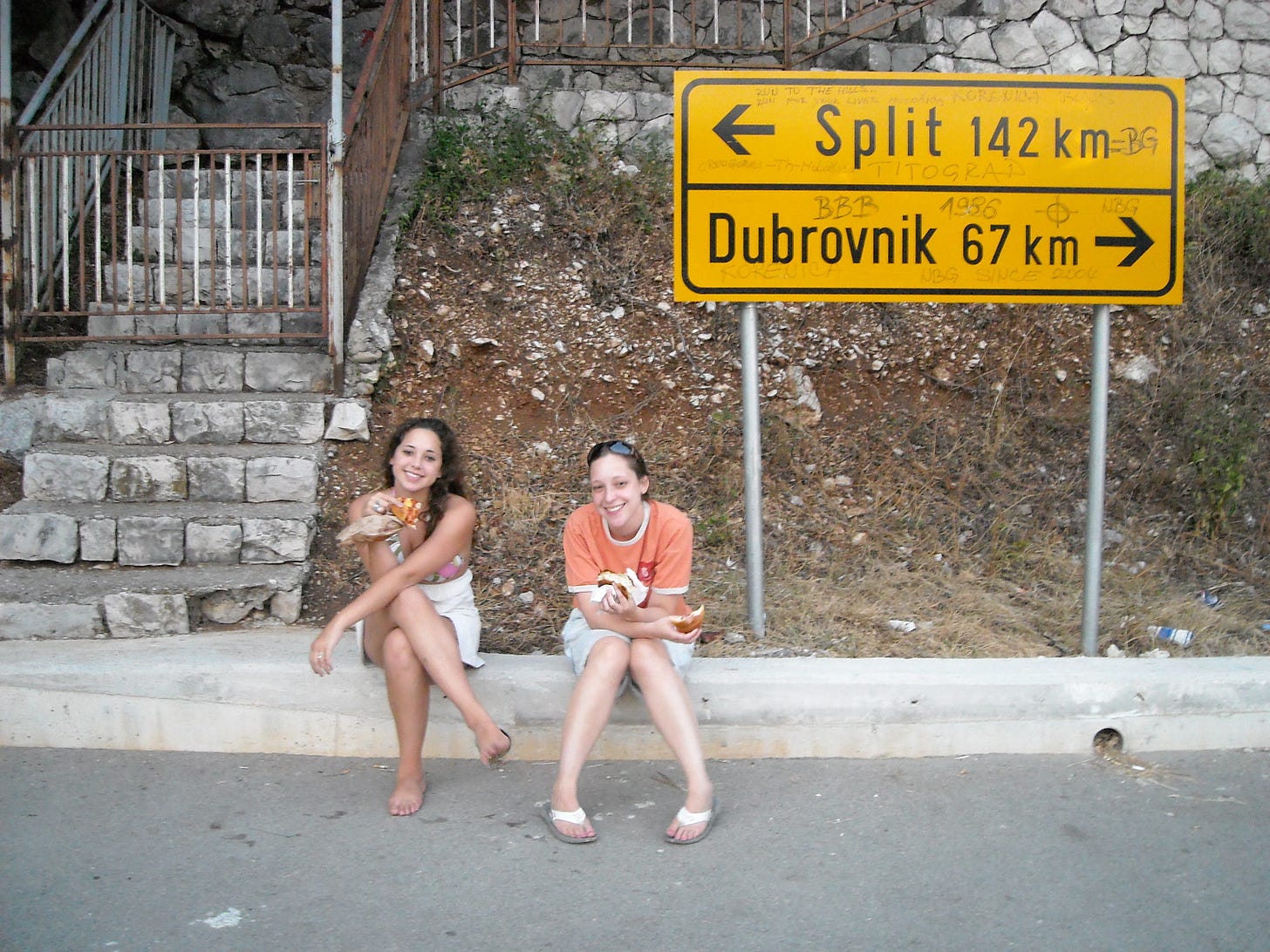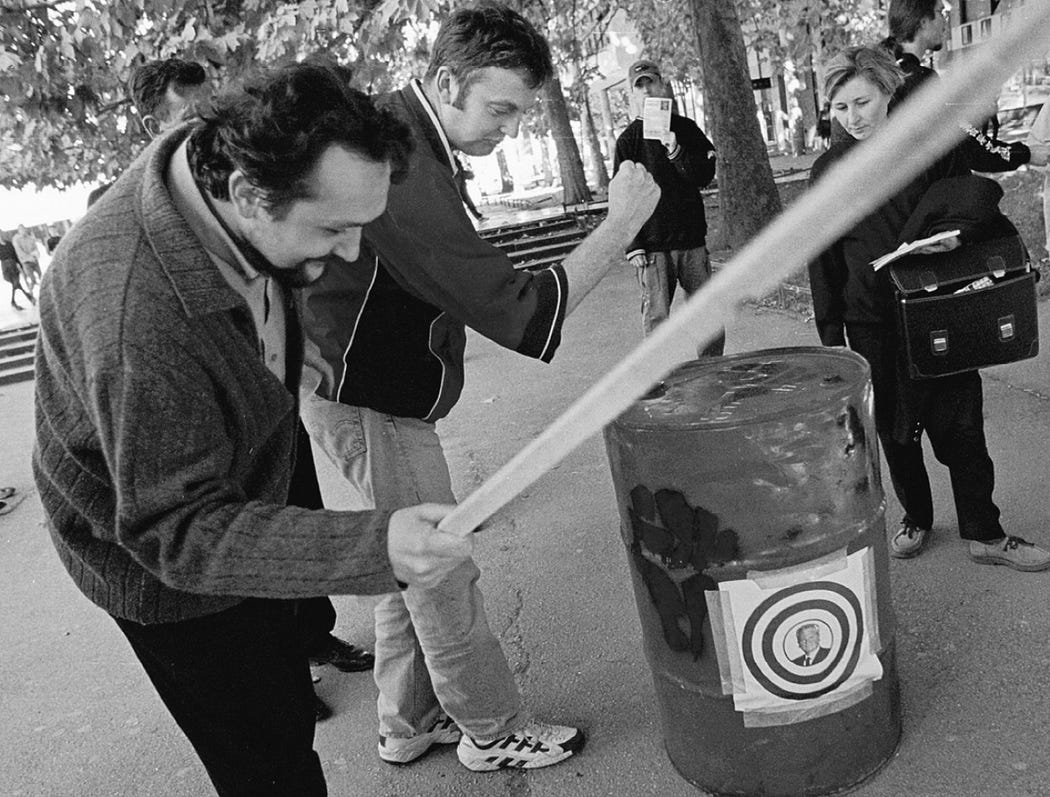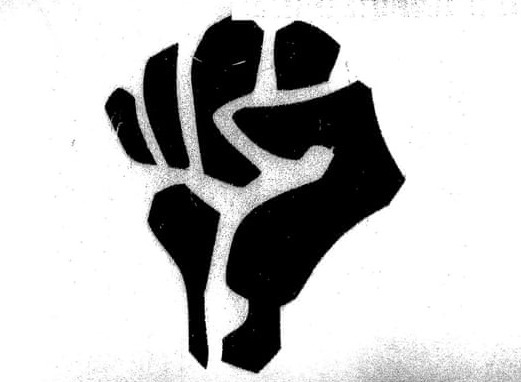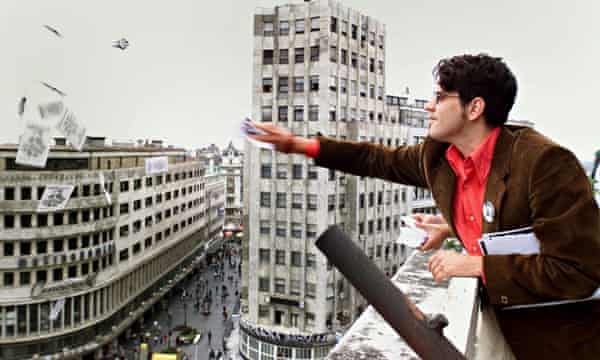Hi. I’m sad. I’m mad. I’m scared, on behalf of others, and for myself.
There are a lot of bad takes about what happened last Tuesday. I won’t add to the pile. Actually, I’m not sure the why behind it all even matters. What I’ve got instead is this: my “coping mechanism” (read: anxiety) has always bent toward the pragmatic; preparing for various worst-case scenarios, mentally, materially, and socially is soothing to me, a way of wresting back some miniscule amount of control. So this week I’ve been thinking a lot about what—concretely, actually, trubiz—do we do now?
We don’t know exactly what the future holds, which is of course part of the terror. But we do have a clear idea of what the incoming regime desires to do. And we have already seen many of the people and systems put in place to stop such a thing from happening—including, but not limited to the Democratic party and legacy media, not to mention large swaths of our fellow citizens—fail to do so. To my mind (and my eyes), we are rapidly careening toward life outside the rule of law. I hope I’m wrong. But I’m going to continue preparing as if I am right.
I’m sure you’ve read a lot about the “power of art” in the last few days. If I’m being honest, I’m not sure I’m fully in on that, not in a world where none of the old rules apply. But let’s be real—I’m a writer, so I’m not fully out on it either. I guess what I’m trying to say is, I didn’t write a book about a country falling into the ruins of civil war and genocide under the hand of a democratically elected Christian nationalist for nothing. And I think we can learn some things from those whose path—and, f*ck it hurts to say this—we’re pretty much following beat-by-beat. From art, and beyond it. Here’s what:
Meet Otpor
Отпор/Otpor! (Resistance!), began in Serbia in 1998 as a student movement against president and war criminal Slobodan Milošević. Though students had been protesting the war since 1991, Otpor was structurally different, and this, I think is why they succeeded in the end:
Nonpartisan: Many Otpor were members of the Democratic party, but Otpor avoided making these connections public. Democratic party movements had already failed (👀). Voter apathy and despondency had only increased. Milošević knew how to wield political propaganda against an opposing party, as well as pit other parties against each other. Being nonpartisan to allow for a broader base, and made it harder for political attacks to stick.
Decentralized Leadership: During wartime, corruption ran rampant through all parties and many NGOs. Having no official hierarchy spread power more evenly, reducing corruption and diversion into leaders’ special interests or personal vendettas.
Otpor started in the places you’d expect student resistance to begin—in Belgrade, often centralized within the University of Belgrade, but the movement quickly established a network of offices throughout the country. Including small towns and more rural locations was different than other movements, and ultimately proved important in Milošević’s undoing.
**This part is really important for those of us who feel the need to do something but aren’t sure what. We needn’t (can’t) wait for a singular, perfect voice to rise above the fray. You can get together with a few likeminded individuals, (and I really mean a few, like 2-5) and think up a few concrete actions that group can pull off (see below) and that plan, and that group can grow into something larger or connect with other groups as we go.**
Multipronged Resistance
Perhaps the biggest key to Otpor’s success to my mind was their use of varied tactics in order to recruit people and resist the government simultaneously. In the US, folks often think of marching in the streets as the end all be all in protest, and Otpor did march, but they also did a lot more, as I’m expecting we will have to. Their differentiated approach and establishment in multiple locations also made them less predictable, as opposed to a movement like Occupy.
Protest/Publicity: Street marches, art, and theater mocking Milošević, concerts, music, and radio, speeches, press releases, informative stickers and posters, pamphlet and literature distribution, activist workshops, political campaigning
(Today translation: We can start any of these right now. What can we say to recruit, educate, and boost morale for the coming fight? Start the presses.)Noncooperation: Armed services defection, election monitoring, boycotts, general strikes
(Today translation: Can you volunteer to make calls for curing ballots? Contact reps and ask them to implement local protections before inauguration? Remove yourself or your money from places that will become tools of the regime? Donate time or elbow grease to supporting still-functioning institutions you believe in, like education? What mutual aid, protections, or materials can we stockpile to make a general strike more feasible?)Nonviolent action: Highway blockades, bulldozing of police blockades, occupation of culturally or governmentally significant buildings.
(Today translation: We have a couple months to think about how to make these work here against a militarized police force, and possibly the actual military. What will we need? Let’s get to it.)
Essentially, noncooperation and nonviolent action eventually spread beyond the student population. If you’ve read that Waging Nonviolence article, you know that these boycotts and strikes were mostly symbolic until coal miners at Kolubara, who produced a large part of the country’s electricity, joined in for maximum economic impact. I expect it will be no different for us—we will need unions and workers. But one advantage of having a ruler who ties his self-worth entirely to the aesthetic of wealth will be that economic impacts will personally humiliate and destabilize, for a double whammy.
New Media
Much of Otpor’s awareness-building came from extensive pamphlet, poster, sticker, and even branded condom circulation in the streets. Use of fax machines and early email was noted, too. Otpor also worked in conjunction with B92 Radio— a rare independent news outlet at the time.
I think it’s become clear to folks that our legacy media will not help us push back against or dismantle a system from which they profit. Arguably they profit more when we are in peril. A few nonprofit or worker-owned media outlets to subscribe to in lieu of the billionaires’ include: The Philadelphia Inquirer, ProPublica, The City, The Marshall Project, The Texas Tribune, Baltimore Banner, Mississippi Free Press. I’d love to get a running list for folks somewhere, if you have more recommendations. Almost certainly we will need to make more of our own.
Laughter (For real)
I was in a little village in Croatia in 2008 when Radovan Karadžić was arrested. Nicknamed “The Butcher of the Balkans,” Karadžić was the architect of several genocidal programs of Croats and Bosnians throughout the region, including ordering the Srebrenica massacre—the murder of at least 8,372 Bosniaks over 20 days inside a UN Peacekeeping Safe Zone. When word came down the mountain that after 12 years in hiding he had been arrested and charged with war crimes, what we did in that village was…got wasted and performed fake eulogies on his behalf until we were all doubled over in side-splitting laughter. Sometimes, it’s all you can do.

I remember this day (through the alcohol haze) because this kind of black humor has always felt like home to me. I think it’s pervasive in the Balkans for a reason.
By the time Otpor came on the scene in 1998, the people of Yugoslavia had lived through years of war. Fear, rage, and sadness were constants, and as such no longer worked as motivators or recruitment tools. So it had to be laughter. Humor was intentional about its use of humor within its literature and programming—from attention-catching jokes and slogans on stickers, to street sites where spectators could pay a dinar to hit a picture of the president with a stick. The attitude even permeated interpersonal communication between fellow members: a popular method of moral support during police beatings and arrests was to shout to one another, “it only hurts if you’re scared!”

Yes, Voting Still (For real)
What Otpor did effectively through its nonpartisan strategy was assemble a broad base both on the streets and within the electorate. Because Otpor’s ultimate goal was to reestablish the rule of law, elections did play a large role in their success. They had seen what voter disillusionment and abstention had gotten them (civil war), and believed in putting their efforts behind one mainstream, electable, non-Milošević candidate. Overthrowing Milošević with no plan in place would have left a dangerous vacuum, so even an imperfect successor was the best way to provide an easily identifiable path back to peaceful power transition, with civil disobedience and cultural protests working in tandem to ensure that those election results were not falsified or ignored. Largely because of their get out the vote efforts, more than 70% of the total electorate voted in the 2000 election.
This, too, I think will be important in the days ahead for us. Otpor membership burgeoned when two parties who had a lot of similarities but often grappled for control worked as a unified base, for the sole purpose of overthrowing Milošević. After they succeeded, they splintered again, which, once they were in a safe place for discourse, totally makes sense! But before that…
Strange Bedfellows
…there was simply no way around working together.
In the past year there’s has been a lot of infighting among the likeminded, and we’ve hurt one another’s feelings. We likely have preconceived wrongful judgements about some folks, and worthwhile ideological differences with others. I’m not suggesting we all hold hands and sing. This coalition-building may well be the hardest part for a multicultural society like the US, because we do have a lot of differences, priorities, and needs, and we are used to scarcity and one-upmanship.
Some of our differences are irreconcilable. But I don’t think most of them are, and especially not temporarily. We need to get real about where those lines are, and admit that our differences can also beneficial—varied skills, knowledge, histories, and strengths, from which to draw.
In the end, some people won’t be part of this fight, and some we’ll actively fight against. But more often, we will have to compromise. We’ll have to work all angles; we will have to abandon virtue-signaling and perfection-seeking and nitpicking and nihilism, and all those tiny dopamine hits that satiate our need for real action. (For dopamine, which is needed, see Laughter above). And again—decentralized leadership works to our advantage here. Different groups can take on different tasks without having to yield fully to one another, provided they move us all forward.
I know so many people, marginalized especially, are already exhausted, and folks should absolutely rest and take a break if and when they can. But if the idea of alliances seems impossible right now, know that the 19-year-old wrote those first pages of Girl at War might be surprised to find their older self here writing a lengthy missive in praise of a Serbian political movement. To effect change, we’ll need to change, too.
Like the fictional Ana, I have learned (and continue to learn) the value of nuance in conflict, and the reality of having to make an imperfect choice anyway. Like her, I will continue to shout “pain into power,” until my last. I really do believe change is still possible. It only hurts if you’re scared.
Further reading
Nonviolent Struggle, 50 Crucial Points: A manual that came out of the Otpor movement and is now available in multiple languages, for download here.
“Nonviolent Struggle and Transition to Democracy in Serbia,” article for more on Otpor’s history.
Profile on an Otpar leader, Srđa Popović, from The Guardian





